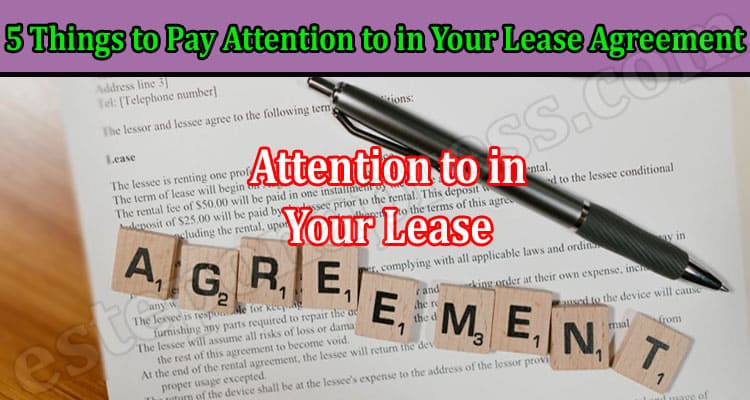So you found an apartment that you loved and would like to move in as soon as possible. Of course, the next move is to get in touch with the landlord or agent to sign the lease agreement. In most cases, you’d just go ahead and sign the lease without even going through the entire document. Well, this should not be the case.
A property or apartment lease is a contractual agreement between a property owner and a rentee, in which the latter is obligated to pay the property owner an agreed amount for the duration they intend to use the property. So when next you sign a lease, ensure it covers the following.
1. Duration
Time is an essential factor for anyone leasing a property. It gives the owner time to look and advertise the vacancy should the property be vacated once the lease duration expires. This means that you as the tenant will be obligated to keep your end of the bargain in terms of stay duration and ensuring that you cover your financial obligation to the landlord.
So next time you sign a lease, don’t just assume things. Confirm the agreed lease timeframe so that you can be in a better position to know whether to vacate once the lease expires or when to renew the lease if the situations are satisfactory.
2. Remodeling Privileges
It’s absolutely okay to want to turn your leased apartment into your sanctuary with OPPOLIA kitchen designs, repaint and all other sorts of DIY projects. Hold your horses! While there is absolutely nothing wrong with wanting your apartment to be an original masterpiece that represents your personality, you may want to consult your lease.
Get to know what you can and cannot change in the leased property. Know the implications that will come about any changes you make to the property. What is the degree of change that your lease permits you to conduct on your rented property? Will it affect your security deposit? Will it make you incur extra costs in the future when you want to vacate the property?
If the lease is unclear about remodelling, talk to your landlord before signing the lease agreement. It gives you room to make further inquiries such as the party responsible for repairs and other inquiries you may have. Make sure everything is clear to avoid future misunderstandings when you move.
3. Security Deposit Refund Policy
Most landlords will try everything to find the smallest faults in your rental property to give them a reason to keep your security deposit. If it is covered in the lease, carefully go through the clause to know the things that might cause you to lose your security deposit. In most cases, breakages and any sort of damage could make you lose your deposit. In other extreme cases, when you leave your property in a messy state, you will end up losing your deposit.
Every property owner will have an additional clause on the same. So rather than just signing the papers, be thorough in your document inspection. It also helps if you and the landlord can inspect the property together so that they can repair any faults the property might have before you move in. It increases the chances of you getting your security deposit back.
4. Maintenance Obligations
It’s a small but significant part of the contract. When there’s a fault in the plumbing system or any other issue on the property, whose obligation is it to get it fixed. Will be added to your property bill or does the landlord handle this.
It is important for you to understand which maintenance obligations fall on you and which ones fall under the landlord. It helps when you need something fixed on the property. Moreover, it saves you from unnecessary encounters with your landlord.
5. The Rent
The monthly payment isn’t the only part of your lease that should be included. It should also state when the payment is due, what methods of payments are permitted, and what penalty is charged for late payments or bounced cheques. The agreement makes things easier in case of any future problems that may arise.
The Bottom Line
Renting a property is a major responsibility that comes with a lot of documentation. However, your lease or rental agreement is the most significant document. It outlines each party’s rights and obligations, as well as a method for enforcing any rules or restrictions. Take your time and read the entire document before signing it.

